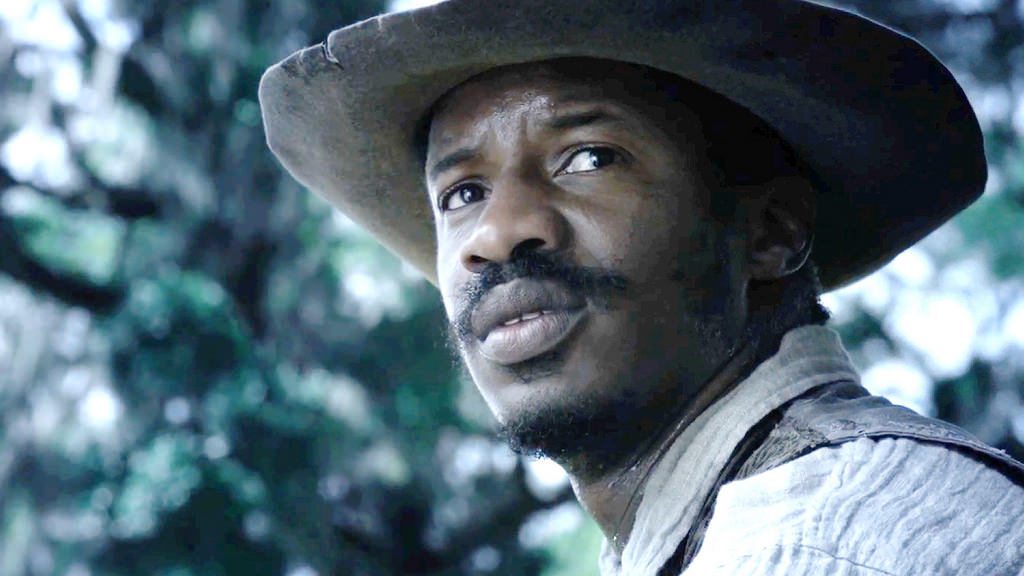‘Birth of a Nation’ Review
The astonishing directorial debut of Nate Parker is an agonising watch, with opening sequences that seek to determine the roots of a 48 hour, slave revolt in the childhood of Nat Turner (played by Nate Parker himself). From the very first moment in ‘Birth of a Nation’, Turner is declared a ‘child of God,’ we witness small glimpses of his turbulent youth that showcase this indefinite attachment to a Bible, held tightly in his grasp. It is this commitment to his faith that leads to the wife of his master devoting her time to train Nat as a preacher. Of course, as the plot unravels the disturbing mechanism of slavery prevents any further success in their pursuits, and he remains only to tell the ‘white’ words of God to broken slaves, weary and tired of their chains.
When he is fully grown, Turner is subjected to the monetary exploitation of his master (Armie Hammer), travelling to different plantations in Southampton County and preaching words of obedience to slaves of cruel men, hoping a mention of heaven will encourage them to work even harder. But there is a fire burning inside the preacher, an anger that Parker conveys miraculously in his eyes and tortured body language. And after an empowered sermon on the wrath of God, his words start to change and he calls upon men to avenge their enemies. A bloodthirst emerging from the darkest places of desperation. Importantly, this transition from submission to revenge is not a subtle one but a brutal crescendo culminating in a breaking point, where the audience, like Turner, cannot bear to watch anymore the suffering of these human beings.
One of the strongest aspects of this film other from the acting is the use of religious symbolism. The cinematographer, Elliot Davis, paints a bruising picture of Christianity and its manipulation in the pursuit of violence. And more often than not, a gleaming cross can be found in the background of bloodshed; Turner’s whipped body forms the shape of Christ at the Crucifixion. Whilst imagery is at times a little too obvious, there’s a clear message Parker is trying to get across, and it’s a difficult one to receive. Can God justify murder, even in the fight for freedom?
Although Turner is ultimately depicted as a hero and rightly so, the film does create some interesting conversation. Emotional questions to be raised over the manipulation of The Bible, and the counter-arguments offered to any one promoting incarceration and slavery. The soundtrack supports these intense emotions beautifully, making use of the harrowing ‘Strange Fruit’ by Billie Holiday in an almost unwatchable lynch mob scene. Parker seems to have capitalised on Steve McQueen’s use of Steadicam in ‘12 Years a Slave’, achieving a physically uncomfortable atmosphere for the audience to sit in.
Colour also plays a fundamental part in heightening the tone of this masterpiece: the deep red blood of slaves soaking through the white corn fields. This is an image that remains throughout the duration of the film, and it solidifies the lives wasted by the land owner’s work. In addition eclipsed moons and candle light all add colour to the eventual rebellion, demonstrating man’s reliance on nature and transforming it into something greater than life itself. Perhaps a subtle calling out of the ‘laws of nature’ white man used to support slavery, which all accumulated to nothing more than ignorance and corrupted desire.
Given the controversy this film has been subjected to, it is with a twinge of sadness that we acknowledge the profound impact and greatness of this feature. The Hollywood Foreign Press and the Academy no doubt, have seemed to ignore Parker’s talents after his involvement in a rape case at the beginning of his career. Understandably, the fictionalised rape scene where Turner runs to the aid of his wife was not well received. So it’s devastating that this significant true story is being obscured by the criminal actions of the artist.
Ultimately though, it is vitally important that Birth of a Nation is recognised, if not by award shows at least by audiences. The passionate direction of Nate Parker is astounding and evokes emotions that films rarely have the power to make you feel. I won’t pretend that this on-screen experience will leave you feeling anything but shell shocked, but when the credits role and you leave the cinema with your head down in silence, know that you’ve kept alive a legacy that brutal white slave owners sought to destroy.

Comments